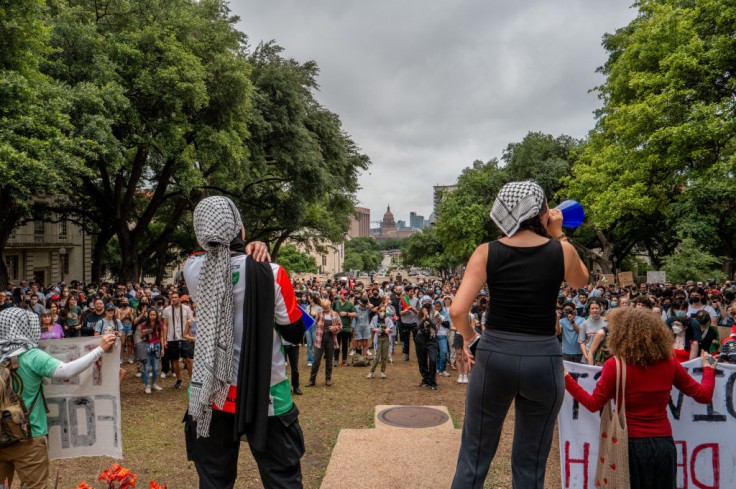College Students on Both Sides Brace For Another Round of Tense Pro-Palestinian Protests
By
With the new school year approaching, both pro-Israel and pro-Palestinian student groups are preparing for renewed college campus protests --- though they may differ than the ones seen last spring.
Hundreds of Jewish and pro-Israel students recently gathered in Washington, D.C., for a leadership summit aimed at strategizing for the upcoming year, according to Fox News Digital. The summit, hosted by the Israel on Campus Coalition, focused on rallying students against rising antisemitism and bolstering pro-Israel activism.
Meanwhile, pro-Palestinian activists are gearing up for more protests as Israel's 10-month conflict with Iran-backed Hamas in Gaza continues. Despite over 2,000 arrests last year, they are planning to intensify their efforts to push their institutions to divest from Israel, among other demands.
"We've been working all this summer on our plans, on what's next to pressure Columbia to listen to the students and to decide to be on the right side of history," Mahmoud Khalil, of Columbia University Apartheid Divest, told The Hill.
Last year's campus disruptions included protests against the Gaza conflict and interruptions of graduation ceremonies. This year, activists are strategizing new ways to raise awareness and apply pressure, despite more universities adopting stricter protesting policies surrounding demonstrations.
Indiana University's Board of Trustees approved a new policy in July regarding campus demonstrations following an independent review of the school's response to pro-Palestinian protests this past spring.
The new policy, which went into effect Aug. 1, supports protests that don't disrupt university operations or hinder the expressive activity of another individual or group.
While the new policy permits actions such as assembly in public areas, peaceful protesting, making speeches and carrying signs, it prohibits constructing temporary structures without approval at least 10 days in advance, outdoor amplified sounds that disrupt others and applying permanent markings to university property.
The University of Pennsylvania also introduced temporary protest guidelines this summer, explicitly banning encampments. And Harvard University announced it wouldn't make official political statements, impeding protesters' efforts to push institutions to take a stance on the Israel-Gaza war. Universities are also showing stronger solidarity with Jewish students, some of whom have sued their schools over hostility or harassment during the protests. This could impact how future demonstrations are handled.
At the pro-Israel summit, speakers including former Israeli Prime Minister Naftali Bennett urged students to remain steadfast in their support for Israel and confront antisemitism with unity and resilience.
"Never apologize for being Jewish. Never apologize for loving the state of Israel," Bennett said.
During a joint meeting of Congress in late July, current Israeli Prime Minister Benjamin Netanyahu expressed similar sentiments and offered scathing remarks to people participating in anti-Israel protests.
"When the tyrants of Tehran who hang gays from cranes and murder women for not covering their hair are praising, promoting and funding you, you have officially become Iran's useful idiots," he said.
© 2026 University Herald, All rights reserved. Do not reproduce without permission.








